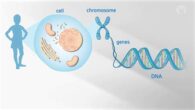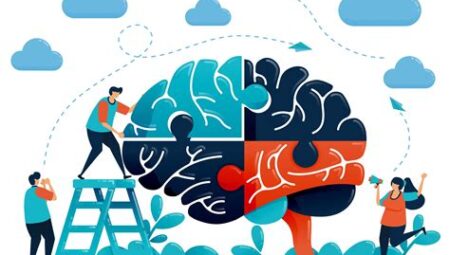Are you passionate about music and interested in pursuing a career that combines your love for music with your desire to help others? Look no further than the field of music therapy. In this blog post, we will explore the world of music therapy and the various aspects of this rewarding profession. From understanding the power of music in healing to the educational requirements and training needed to become a music therapist, we will delve into the necessary steps to kickstart a career in this field. We will also discuss the development of musical skills and knowledge, gaining clinical experience, and the process of creating individualized treatment plans for diverse populations. Join us as we unravel the symphony of health and learn how music therapy can make a meaningful impact on the lives of others.
Table of Contents
What is Music Therapy?
Music therapy is a therapeutic approach that utilizes music to address physical, emotional, cognitive, and social needs of individuals. This holistic treatment method involves the use of music to achieve non-musical goals, such as reducing anxiety, improving communication skills, and enhancing overall well-being. Music therapy can be used with people of all ages and abilities, and it is effective in a variety of settings, including hospitals, schools, and rehabilitation centers.
One of the key components of music therapy is the relationship between the music therapist and the client. Through music, the therapist can create a safe and supportive environment for the client to explore and express their emotions. This process can lead to increased self-awareness, improved mood, and a greater sense of empowerment.
It is important to note that music therapy is not solely about listening to music. In fact, it often involves active participation, such as singing, playing instruments, or moving to the rhythm of the music. These interactive activities can help individuals work on motor skills, social skills, and emotional expression.
In summary, music therapy is a unique and effective treatment modality that harnesses the power of music to promote healing and well-being. By addressing a wide range of physical and emotional needs, music therapy offers a versatile and impactful approach to improving the lives of individuals across diverse populations.
The Power of Music in Healing
Music has a profound impact on our emotions and mental well-being. It has the power to evoke memories, soothe our souls, and even alleviate physical pain. The healing properties of music have been recognized for centuries, with ancient civilizations using music as a form of therapy. Whether it’s through listening to music, playing an instrument, or singing, the therapeutic benefits of music are undeniable.
Research has shown that music has the ability to reduce stress, anxiety, and depression. It can also improve mood, boost self-esteem, and enhance overall quality of life. In addition to its psychological benefits, music has been found to have physical effects as well. For example, listening to calming music has been shown to lower blood pressure and heart rate, making it a valuable tool in the treatment of cardiovascular conditions.
Music therapy is a growing field that harnesses the power of music to address a wide range of health issues. Music therapists work with individuals of all ages and backgrounds, using music interventions to promote wellness, manage stress, and improve communication and cognitive skills. Whether it’s in a hospital setting, a rehabilitation center, or a community outreach program, the impact of music therapy can be truly transformative.
Ultimately, the power of music in healing lies in its ability to connect with us on a deep, emotional level. It transcends language and cultural barriers, providing comfort and solace in times of need. As we continue to uncover the therapeutic potential of music, it’s clear that its role in the healing process is indispensable.
Becoming a Music Therapist
So you’ve decided that you want to become a music therapist. This career path can be incredibly rewarding as you will have the opportunity to use music to help improve the lives of others. In order to become a music therapist, you will need to meet certain educational and training requirements.
First and foremost, you will need to obtain a bachelor’s degree in music therapy from an accredited program. This will provide you with a solid foundation in music theory, psychology, and clinical skills. Additionally, you will need to complete an internship under the supervision of a licensed music therapist in order to gain practical experience in the field.
After completing your education and training, you will need to obtain certification as a music therapist. This typically involves passing an exam administered by the Certification Board for Music Therapists. Once you are certified, you will be eligible to practice as a music therapist and work with a variety of clients in different settings.
Overall, becoming a music therapist requires a significant investment of time and effort, but the opportunity to make a positive impact on the lives of others through the power of music makes it all worthwhile.
Educational Requirements and Training
When pursuing a career in music therapy, it is essential to understand the educational requirements and training involved in becoming a licensed music therapist. Many individuals may not realize that this profession requires a significant amount of academic and clinical preparation in order to effectively work with clients in a therapeutic setting.
One of the first steps towards becoming a music therapist is obtaining a bachelor’s degree in music therapy from an accredited university or college. This comprehensive program typically includes coursework in music theory, psychology, and anatomy, as well as supervised clinical practicum experiences.
After completing the necessary undergraduate education, individuals must then apply for a music therapy internship. This internship, which is typically six to nine months in duration, provides practical, hands-on experience working with individuals in a clinical setting under the supervision of a licensed music therapist.
Upon successful completion of the internship, aspiring music therapists must then pass the national board certification exam to officially become a board-certified music therapist (MT-BC). This rigorous exam evaluates the individual’s knowledge and skills in the field of music therapy, ensuring that they are well-prepared to practice ethically and effectively with clients.
Developing Musical Skills and Knowledge
Developing musical skills and knowledge is an essential part of becoming a successful music therapist. Music therapy is a unique form of treatment that uses music to address the physical, emotional, cognitive, and social needs of individuals. In order to be effective in this field, music therapists must have a strong foundation in music theory, composition, and performance.
One of the first steps in developing musical skills and knowledge is obtaining a formal education in music. This may include studying music at a university or college, or receiving specialized training in music therapy. Courses typically cover a range of topics, such as music history, music theory, psychology of music, and therapeutic techniques.
In addition to formal education, gaining practical experience is also crucial. This can involve taking private music lessons, participating in ensembles or choirs, or attending workshops and conferences. By actively engaging with music, aspiring music therapists can refine their musical skills and gain a deeper understanding of how music can be used therapeutically.
Furthermore, ongoing professional development is essential for music therapists to stay current with new research and techniques. This may involve attending continuing education courses, pursuing advanced degrees, or participating in mentorship programs with experienced practitioners.
Gaining Clinical Experience
As a music therapist, gaining clinical experience is an essential part of your training and professional development. Clinical experience allows you to apply the knowledge and skills you have learned in a real-world setting, working with actual clients and addressing their unique needs.
One way to gain clinical experience is through internships or practicum experiences. These opportunities provide you with hands-on experience working with individuals of all ages and backgrounds, under the supervision of experienced music therapists. During these placements, you will have the chance to observe and participate in therapy sessions, develop treatment plans, and collaborate with other healthcare professionals.
Another important aspect of gaining clinical experience is learning to adapt your therapeutic approach to different populations and settings. This may involve working with clients with varying levels of abilities or disabilities, in settings such as hospitals, schools, or community centers. Understanding how to tailor your interventions to meet the specific needs of each client is a valuable skill that can only be developed through direct experience.
Ultimately, gaining clinical experience as a music therapist is about honing your abilities, gaining confidence in your skills, and learning through real-world practice. This hands-on experience will prepare you to work effectively with diverse populations, and make a meaningful difference in the lives of your clients through the power of music.
Understanding the Therapeutic Process
Understanding the therapeutic process in music therapy is crucial for both therapists and clients. This process involves the systematic use of music to address physical, emotional, cognitive, and social needs. It begins with the therapist and client establishing a rapport and setting goals for the therapy sessions.
During the therapeutic process, various musical activities are used to achieve these goals. These activities can include listening to music, writing and performing songs, and playing instruments. The therapist carefully selects these activities based on the client’s needs and preferences, creating a personalized experience.
Another important aspect of the therapeutic process is the evaluation and reflection that takes place after each session. The therapist assesses the client’s responses to the music and makes adjustments to the treatment plan as needed. This ongoing evaluation ensures that the therapy remains effective and responsive to the client’s changing needs.
Overall, understanding the therapeutic process in music therapy involves a deep appreciation for the power of music to facilitate healing and growth. It requires skillful assessment, creativity in designing interventions, and sensitivity to the client’s individual journey. By gaining a clear understanding of this process, music therapists can provide meaningful support to their clients and foster positive changes in their lives.
Creating Individualized Treatment Plans
Creating individualized treatment plans is a crucial aspect of music therapy, as it involves tailoring the therapeutic approach to the specific needs of each client. It is important to recognize that every individual has unique experiences, preferences, and challenges, and therefore requires a personalized treatment plan to address their specific needs.
When creating individualized treatment plans, music therapists take into consideration the client’s age, cultural background, musical preferences, and therapeutic goals. This involves a comprehensive assessment of the client’s strengths and areas of improvement, as well as an understanding of how music can be used to achieve therapeutic outcomes.
Furthermore, individualized treatment plans in music therapy are dynamic and can evolve over time as the client’s needs and goals change. This flexibility allows the therapist to continuously adapt the treatment plan to ensure it remains relevant and effective for the client’s unique circumstances.
Overall, creating individualized treatment plans in music therapy requires a deep understanding of each client’s unique needs, as well as the ability to adapt and refine the therapeutic approach as necessary. By tailoring the treatment plan to the specific needs of each individual, music therapists can maximize the therapeutic benefits of music and facilitate meaningful progress for their clients.
Working with Diverse Populations
Working with diverse populations as a music therapist requires a deep understanding and appreciation of different cultures, backgrounds, and individual differences. It is essential to acknowledge and respect the unique experiences and perspectives that each person brings to the therapeutic setting.
One of the key aspects of working with diverse populations is the ability to tailor treatment plans to meet the specific needs and preferences of each individual. This may involve incorporating culturally relevant music, understanding the impact of cultural beliefs on health and well-being, and being sensitive to the varying levels of comfort with music therapy interventions.
Communication is another crucial skill when working with diverse populations. Being able to establish rapport and build trust with individuals from different backgrounds is essential for creating a safe and supportive therapeutic environment.
Lastly, it is important for music therapists to continually educate themselves about different cultures and the unique challenges that diverse populations may face. This ongoing learning process can help music therapists to better understand the needs of their clients and provide more effective and culturally sensitive care.
Evaluating and Measuring Treatment Outcomes
When it comes to music therapy, evaluating and measuring treatment outcomes is an essential part of the process. This step allows music therapists to assess the effectiveness of their interventions and make any necessary adjustments to their treatment plans. By using a variety of assessment tools and methods, music therapists can track the progress of their clients and determine the impact of the therapy on their overall well-being.
One common method used to evaluate treatment outcomes in music therapy is to conduct pre- and post-assessments of a client’s emotional, cognitive, and physical functioning. These assessments can include standardized tests, self-report measures, and observational data. By comparing the results of these assessments before and after the therapy, music therapists can gain valuable insights into the changes that have occurred as a result of the treatment.
In addition to pre- and post-assessments, music therapists may also use ongoing measures to track the progress of their clients throughout the course of the therapy. These measures can include regular check-ins, progress reports, and feedback from the clients themselves. By collecting data at various intervals, music therapists can monitor changes in their clients’ functioning and make any necessary adjustments to their treatment plans.
Overall, the process of evaluating and measuring treatment outcomes in music therapy is crucial for ensuring that clients receive the most effective and beneficial care. By utilizing a variety of assessment methods and tracking progress over time, music therapists can gain a deeper understanding of the impact of their interventions and make informed decisions about the course of treatment.






